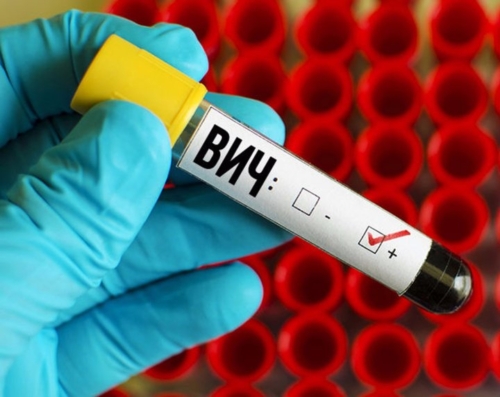Time Is Right to Reform Laws on HIV Criminalization
The evolution in the treatment of HIV and AIDS since the 1980s is a testament to the inspiring power of modern medical science.
What was once a death sentence that spread fear and panic is now a chronic, manageable disease.
Sadly, many laws regarding HIV and AIDS have not made similar progress. Laws based on outdated and faulty science have been used to prosecute hundreds of people, some of whom ended up serving lengthy prison sentences.
In 2014, the AIDS Law Project of Pennsylvania responded to 109 inquiries from people concerning HIV criminalization. The cases have included consensual sex, assaults and various interactions with law enforcement officers.
Sero Project, a network of people with HIV and their allies fighting for freedom from stigma and injustice, said about two-thirds of states and jurisdictions have statutes that make having HIV an element of a crime. In many other states, HIV cases have been prosecuted under other laws.
There have been hundreds of prosecutions, according to Sero Project, and punishments are often vastly disproportionate to any actual harm.
Pennsylvania does not have any statutes that include HIV as an element of a crime, but prosecutions have been pursued under other laws. The state has provisions for enhanced penalties if a defendant has HIV, usually related to prisoners and sex workers.
The AIDS Law Project of Pennsylvania recently represented a young woman whose case illustrates the perils of misguided prosecutions. The woman asked to be identified by her real name because she wants to speak out about the injustice of HIV criminalization.
Julie Graham, a licensed practical nurse from Lebanon County, was charged with four crimes, including two felonies, based on allegations by a man she had dated who claimed she had not disclosed her HIV status. The man who made the complaint against her did not contract HIV.
If convicted on the charges, Graham could potentially be put in prison for decades. She had to post $25,000 bail after being arrested.
She went to the AIDS Law Project for help, where executive director Ronda B. Goldfein, managing attorney Yolanda French Lollis and staff attorney Adrian M. Lowe helped her for the entirety of the case.
When Graham was diagnosed with HIV in 2011, she began treatment and her viral load was soon undetectable, meaning it was all but impossible for her to transmit the virus. So, she was stunned when state police contacted her in September 2013 and told her of the man’s allegations.
As a result of the charges, Graham was suspended indefinitely from her hospital job and scheduled to lose her medical insurance. Her name, the small town where she lives and works, and her private medical information were exposed in the local media’s coverage of the case.
While attorney Larry Krasner, of the Philadelphia firm Krasner & Long, mounted a vigorous criminal defense, the AIDS Law Project assisted him and helped Graham with the fallout from the case, such as helping her get unemployment compensation, a battle in itself, and medical insurance.
Goldfein said that HIV criminalization prosecutions have the potential to consume a person’s life.
“When you get charged with a crime like this, there is so much collateral damage at every level,” she said.
Krasner, who was assisted by attorney Brian Collins, said he was drawn to the case because “it seemed as if there was a potential for a serious injustice.”
He likened it to the famous Scopes Monkey Trial of 1924, where legendary lawyer Clarence Darrow defended a teacher who was prosecuted under a Tennessee law that prohibited teaching human evolution in a public school.
“It’s a situation of running headlong into scientific misinterpretation,” he said.
Prosecutors in Graham’s case eventually dropped the two felonies and a misdemeanor, but wanted to proceed on the final misdemeanor.
The AIDS Law Project and Krasner approached the case as a policy issue. Krasner said a turning point came when the district attorney agreed to meet with Goldfein to discuss general concerns about HIV criminalization.
In March, the District Attorney’s Office announced it would not prosecute the remaining charge, which cleared the way for the AIDS Law Project to work on getting Graham’s suspension revoked. Finally, on April 16, her nightmare came to an end when the hospital notified her she could return to work.
As a result of her experience, Graham has become an HIV criminalization activist and is committed to educating people, particularly young women, about HIV.
“People need to be educated about the disease,” she said. “Once you’re educated, there’s so much power in that.”
It’s people like Graham who are leading the fight to reform HIV criminalization laws.
Sean Strub, executive director of Sero Project, said the time is right for reform.
“In recent years, awareness has grown dramatically, largely due to those who have been prosecuted speaking out,” Strub said. “We also now have public health leadership and the pharmaceutical industry caring about the issue.”
Advocates say reform also is needed because criminalization actually hinders the fight against HIV and AIDS. People can be left with the message “take the test and risk arrest,” the opposite of what health officials say is needed to fight HIV.
“The whole concept of criminalization is in direct contradiction to the public health HIV prevention message to take personal responsibility,” Goldfein said.
The fledgling movement got a boost in June 2014, when the first HIV Is Not a Crime conference was held in Iowa. More than 125 people from 27 states attended the conference to make state-by-state, long-range plans to reform HIV criminalization laws.
Obama administration officials have stated their opposition to HIV-specific criminal laws. The White House’s Office of National AIDS Policy issued a white paper in 2010 that stated “enforcement of such laws run counter to scientific evidence,” and that they “may undermine the public health goals of promoting HIV screening and treatment.”
Another positive step came just before the conference, when Iowa’s legislature became the first in the United States to vote to repeal its HIV-specific criminal statute. The governor later signed the measure.
Tami Haught, a Sero Project board member, is a woman living with HIV who led the effort in Iowa for the Community HIV/Hepatitis Advocates of Iowa Network.
“Our hope is that by beginning to modernize the laws in Iowa, it will signal other states to do the same,” she said. “Having HIV is not a crime. Our laws here in Iowa and across the country need to reflect this fact.”
Mark Spencer is the communications consultant for the AIDS Law Project of Pennsylvania and a freelance journalist. Contact him by email at spencer@aidslawpa.org.
Criminal charges against HIV-positive nurse withdrawn
Graham, 27, said the experience propelled her forward as an HIV advocate.
“People with HIV need to know that if these laws are brought against them, they can fight it,” she said. “They need the right resources and the right people on their side. We can change attitudes and the stigma associated with being HIV-positive.”
The law project represented Graham in civil matters, ensuring that she received unemployment compensation, had continuous health-care coverage and was reinstated to her job in April.
“We represented her at the unemployment-compensation hearing and in discussions with the hospital to reinstate her,” Goldfein explained.
Graham said the experience had an empowering effect, but she wouldn’t wish it on anyone.
“The positive part was meeting people who are HIV-positive and networking with them. I do feel at home when I’m with them. But I would never wish this upon anyone. Even though I grew and matured over this, it wasn’t a positive experience.”
She expressed hope that her story will inspire others.
“I truly hope my story can shed some light on how wrong it is to criminalize HIV,” she concluded. “And I hope others can take heart and find the right resources and the right people to fight back, if they’re in a similar situation.”
Krasner sees a bright future for Graham.
“Julie was heroic for hanging in there and fighting,” he said. “She’s a strong, intelligent person with a bright future in many areas. And I hope she achieves all of her goals.”
Susquehanna Township woman arrested for assault after lying about HIV status, police say
A Susquehanna Township woman has been charged with aggravated assault and other crimes after police said an investigation showed that she lied to a sexual partner last summer about her HIV status. State Police in Jonestown said they charged Julie Graham, 25, of Harrisburg, after investigating allegations stemming from Graham’s relationship with an unnamed 25-year-old man in June 2013.
Police said their probe showed Graham, who knew she was HIV-positive, lied to the victim about her health status and engaged in unprotected sex with him at both his and her residences.
Graham was arraigned before Magisterial District Justice Kim Wolfe on charges of aggravated assault, sexual assault, simple assault and reckless endangerment. She was released on $25,000 bail pending further disposition of the charges.
For many years now, Pennsylvania prosecutors have used the state’s general criminal statutes to charge people who know they are infected with HIV/AIDS or other sexually transmitted diseases (STDs) and engage in sexual conduct without disclosure.




